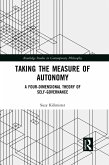Individuals who value personal autonomy and sympathize with others can be guided by a set of central obligations that are familiar to those sharing in the Western moral tradition. These obligations may not be applicable to every imaginable situation, but the informed determination to act upon them is necessary for combating serious and easily identifiable moral evils. This overall argument is called a post-Kantian moral image. Here, "moral image" is understood as a comprehensive pattern of ethical thought that retains a high level of generality and imposes some order on our normative considerations. The characterization "post-Kantian" indicates that the proposed moral image is inspired by and draws upon Kant's practical philosophy. At the same time it avoids certain problematic Kantian positions and incorporates others that have been vehemently rejected by Kant- like the key role of emotion- in undertaking and justifying morality.
Hinweis: Dieser Artikel kann nur an eine deutsche Lieferadresse ausgeliefert werden.
Hinweis: Dieser Artikel kann nur an eine deutsche Lieferadresse ausgeliefert werden.








